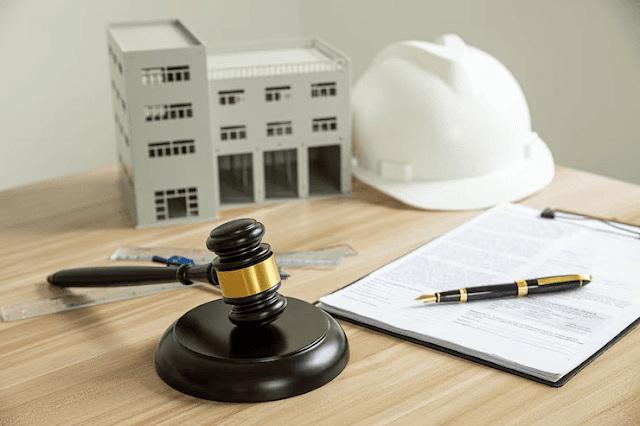The Role of a Construction Attorney in Your Building Project
Building or renovating a property can be an exciting and rewarding experience. Whether you're a homeowner embarking on a dream project or a contractor managing a large-scale construction venture, there are numerous tasks to handle. One critical aspect that often gets overlooked is the importance of legal advice and support. A construction attorney plays a vital role in ensuring that the entire process runs smoothly, stays within the law, and minimizes the risk of legal issues. In this post, we’ll explore the role of a construction attorney and how they can help guide your building project from start to finish.
What Is a Construction Attorney?
A construction attorney is a lawyer who specializes in laws related to the construction industry. They have expertise in construction contracts, disputes, labor laws, regulations, zoning, and other legal matters that can arise during a building project. They can represent homeowners, contractors, developers, subcontractors, architects, engineers, or anyone involved in the construction process.
Having a construction attorney on your team ensures that legal risks are managed proactively and that the project adheres to local, state, and federal laws. Whether it’s preventing conflicts or solving issues that arise, a construction lawyer is an essential part of the project’s legal backbone.
How Can a Construction Attorney Help?
Here’s a breakdown of the various ways in which a construction attorney can assist throughout your building project:
1. Reviewing and Drafting Contracts
One of the primary roles of a construction attorney is to help with contracts. Construction projects typically involve multiple parties, including contractors, subcontractors, suppliers, and designers. Each party needs a contract that clearly defines the terms of their involvement, obligations, deadlines, and payment arrangements.
A construction attorney ensures that the contracts are comprehensive, protecting your interests and reducing the chance of disputes. They can help:
Draft or review contracts before you sign them.
Make sure the contracts comply with the local laws and regulations.
Clarify payment terms, deadlines, and procedures for addressing delays.
Identify potential risks or vague clauses that may lead to misunderstandings.
By getting legal advice early on, you can avoid costly mistakes and confusion down the line.
2. Ensuring Compliance with Building Codes and Zoning Laws
Every construction project must adhere to local building codes and zoning laws. These codes set standards for safety, design, and functionality. Zoning laws govern how land can be used, what types of buildings can be constructed, and the permits that are required.
Construction attorneys have a deep understanding of the relevant local laws and regulations. They help ensure that your project is fully compliant by:
Ensuring the project meets all local building codes and safety regulations.
Helping with the necessary zoning applications and permits.
Addressing any zoning issues or restrictions that might affect the property.
Failure to comply with these laws can lead to fines, delays, or even the halting of your project. A construction attorney helps you navigate these regulations with ease.
3. Dispute Resolution
In construction projects, disputes are common. These may involve disagreements about the quality of work, missed deadlines, payment issues, or even damage to the property. While it’s natural for conflicts to arise, how they are handled can make a big difference.
Construction attorneys are skilled in dispute resolution and can help avoid litigation by offering mediation, arbitration, or negotiation services. If a dispute does escalate, they can represent you in court. Here's how they can help resolve issues:
Addressing conflicts with contractors, suppliers, or subcontractors.
Helping you resolve payment issues, including mechanic's liens or non-payment disputes.
Mediating disagreements between homeowners and builders.
Representing you in arbitration or court if the issue cannot be settled outside of the courtroom.
By having an attorney involved early, you can often avoid long and costly legal battles.
4. Handling Delays and Liens
Delays are common in construction projects, whether due to bad weather, supply chain issues, or disputes with contractors. Delays can lead to financial losses and stress for homeowners and developers alike.
A construction attorney can help handle situations involving delays, such as:
Drafting clauses to account for unexpected delays in the contract.
Addressing claims of damages caused by delays.
Helping you file or contest mechanic’s liens in case contractors or suppliers have not been paid.
In the event that contractors or subcontractors are not paid for their work, a construction attorney can help manage the filing of mechanic’s liens, which are legal claims against the property. These liens can complicate property ownership and financing, so it’s essential to handle them correctly.
5. Insurance and Liability Issues
Construction projects come with risks, both for workers on-site and for the property itself. Insurance is critical to protect against accidents, injuries, and property damage. A construction attorney can assist in the following ways:
Reviewing insurance policies to ensure adequate coverage.
Helping determine the liability for accidents or injuries that happen during the construction process.
Advising on workers' compensation claims and other insurance-related matters.
They can also guide you in situations where you may need to file an insurance claim or defend against a claim. By having the right legal protection, you reduce the risk of significant financial losses due to unexpected events.
6. Navigating Environmental Regulations
Many construction projects are subject to environmental laws and regulations that protect the environment. These laws can include waste disposal requirements, restrictions on the use of certain materials, or the need for environmental assessments.
Construction attorneys are familiar with these regulations and can ensure that your project doesn’t violate any environmental laws. This can include:
Helping with environmental permits.
Ensuring the project complies with waste disposal laws.
Addressing concerns related to environmental hazards like asbestos or lead.
By staying on top of environmental concerns, you not only avoid fines but also help create a project that aligns with sustainability goals.
Conclusion
The role of a construction attorney is indispensable when managing a building project. From drafting contracts and ensuring compliance with regulations to resolving disputes and handling insurance matters, a construction lawyer helps keep your project on track and legally sound. Whether you're just starting the planning phase or are already deep into the construction process, having a legal expert by your side can save you time, money, and stress.
By working with a construction attorney, you can ensure that your project progresses smoothly, stays compliant with the law, and avoids costly delays or legal issues. It’s always a wise decision to have legal support before, during, and after your building project—helping you to achieve your goals with peace of mind.
.png)

Comments
Post a Comment